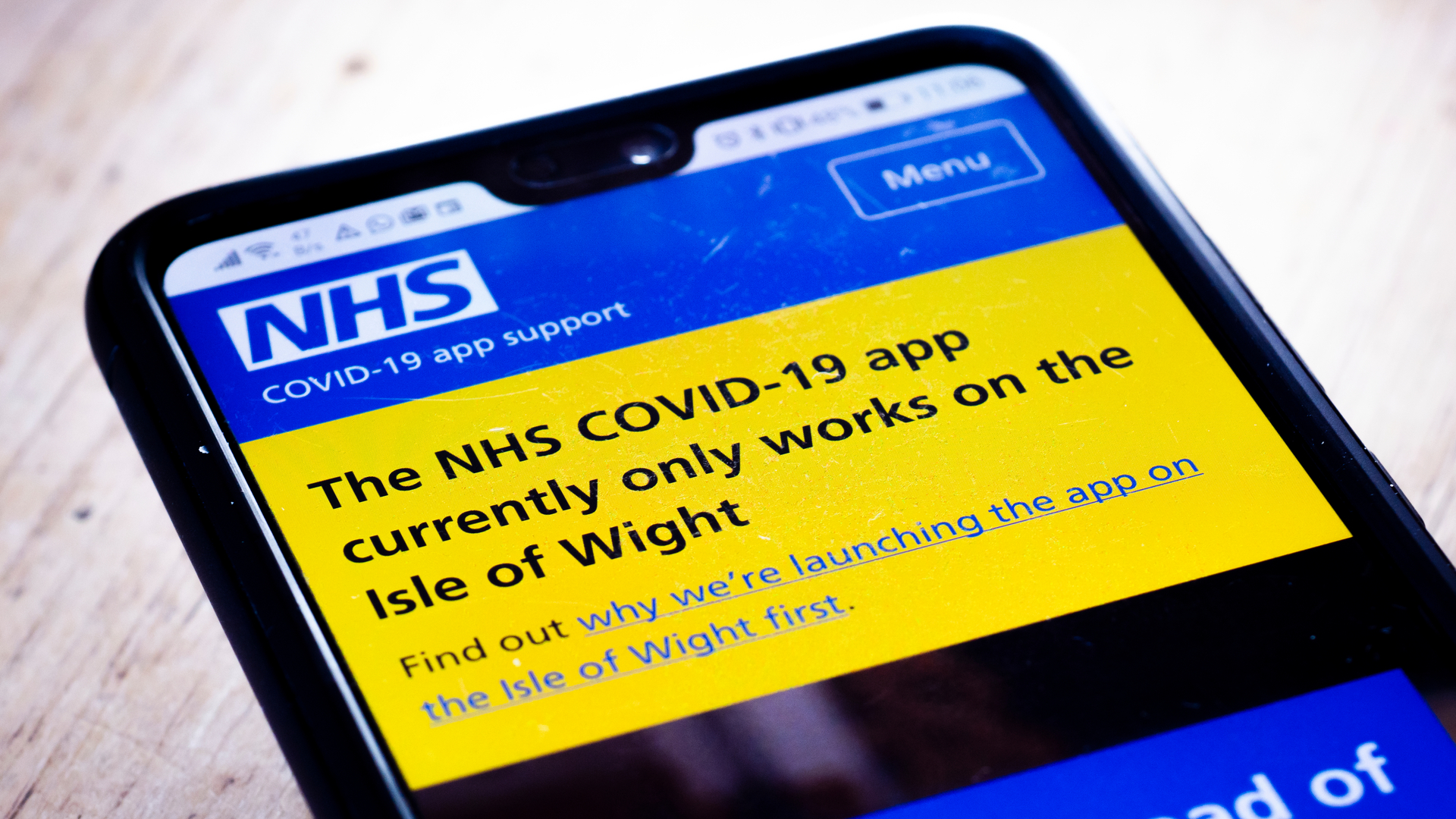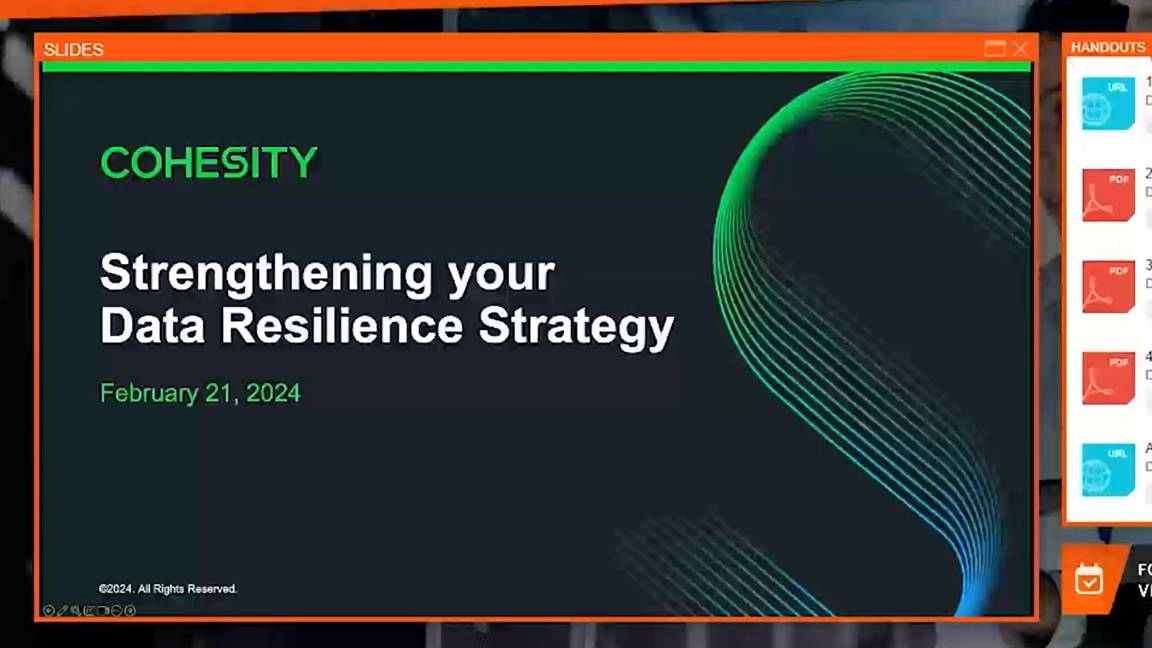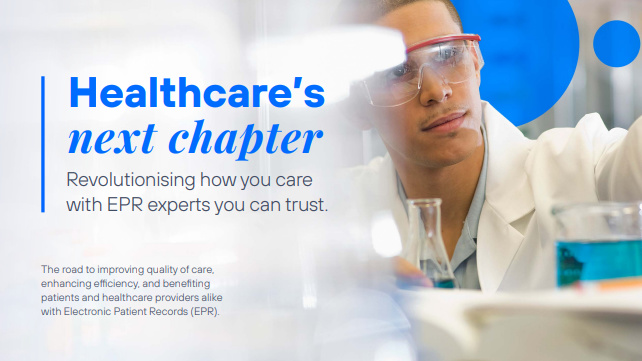Will the NHS Federated Data Platform transform UK healthcare?
Plans to create a data platform in partnership with the private sector could revolutionize NHS treatment, but concerns over data privacy and security are festering

It’s been more than a decade since the UK government abandoned plans to create a new NHS IT system, costing taxpayers billions of pounds. The scheme had been designed to deliver electronic records, digital scanning, and integrated IT systems across hospitals and community care.
For many in both the public and private sectors, that contracting saga lives long in the memory and its failure has now returned front of mind with government plans to create the new NHS Federated Data Platform (FDP).
What is the Federated Data Platform (FDP)?
The government hopes the FDP will allow NHS organizations to gather operational data from across the huge organization’s disparate systems and consolidate it in one place.
READ MORE

Writing on gov.uk last year, National Data Guardian Dr Nicola Byrne explained how the “value of our data will only be realized if it can be organized in such a way that the NHS is able to use it well to improve treatments, services and ultimately our health and care”.
“The programme’s work to support better health and care for all through the better use of our data is too important an ambition to fail,” she added.
However, with the platform value set at £480 million and multiple bidders expected, this new scheme doesn’t come without controversy. Fears over privacy, and concerns about data security, are all driving debate.
Iain O’Neil, a former NHS director, and now managing partner of health and social care at TPXimpact, believes we will only “truly unlock the potential of NHS data” once the fundamentals are right; this includes data standards, interoperability, and getting data where and when it’s needed most.
Sign up today and you will receive a free copy of our Future Focus 2025 report - the leading guidance on AI, cybersecurity and other IT challenges as per 700+ senior executives
He suggests funnelling all NHS patient data into one private firm could be a risk, explaining: “The FDP will work best if it supports an ecosystem of suppliers tackling the difficult challenges the health and care system faces.”
And looking ahead five to ten years, he adds: “Clinical decisions based on data gathered from the 67 million people plugged into the NHS Service should be ubiquitous, enabling learning and better decision making.”
A revolution for managing and storing data
A major challenge for the FDP will be to gain frontline buy-in from receptionists, clinicians, nurses, and all working with data within the NHS. Unless the culture inside the organization fully adopts it, it won’t achieve its aims, experts argue.
But Alex Case, who previously worked in Downing Street overseeing cross-Whitehall Brexit delivery, believes the platform could “revolutionize the way we store, manage, and utilize healthcare data in the UK” – although he agrees this is only one part of the story.
“There needs to be a recognition of the need to coordinate and orchestrate a 'patient journey' across the different components of an integrated care system, because that’s the point of taking a consolidated view of the data,” Case, who is now public sector industry principal at Pegasystems, explains.
Data is most valuable when it is extensive and detailed. As the current handling of data within the NHS involves sensitive data being stored on many separate systems, this often leads to poor access and visibility of data by stakeholders.
Robin Röhm, CEO of Apheris
READ MORE

Many argue implementing cutting-edge technology and infrastructure in partnership with the private sector could allow for a more coordinated healthcare system. Case, however, adds: “It’s crucial the NHS ensures data is collected and shared in a responsible and transparent manner, with robust safeguards in place to protect patient confidentiality. Additionally, there is a need for clear guidelines around data ownership and access to prevent any potential misuse or abuse.”
He argues the platform should be feature-rich, rather than simply focused on data integration, if patients are to be placed on “the right pathway to get the right treatment, at the right time”, while also accounting for NHS workloads, backlogs, and prioritization.
“The government and their technology partners have the responsibility to work together to ensure we deliver the highest standards of ethics and governance so that we can address the healthcare needs across the nation better and more reliably than before,” Case warns.
Experts agree the FDP should lead to better decision-making, given it will break down silos, including CEO of Apheris, Robin Röhm. “By providing access to distributed data sources, stored in different sources and locations, the data analytics platform can then be utilized for a multitude of operational purposes from care coordination to improving medicine supply chains.
“Data is most valuable when it is extensive and detailed. As the current handling of data within the NHS involves sensitive data being stored on many separate systems, this often leads to poor access and visibility of data by stakeholders.
“Federated data ecosystems are the most pressing response to the problem of working across organizational and geographical boundaries as personal data never leaves its secure environment.”
Avoiding the threat of vendor lock-in
The need to keep information in the FDP from being personally identifiable is a major issue for campaigners and patient-led organisations. The security risks are real; for example, according to Palo Alto Networks’ Unit 42 team, healthcare was the third most-targeted sector in the UK, with 9% of all attacks targeting healthcare organisations.
Amanda Brock, CEO at not-for-profit OpenUK, suggests some form of NHS systems standardisation could help manage every aspect of the user journey from appointment booking to service delivery, while updating patient records along the way to be more efficient. But she warns its success depends on its implementation; the NHS must own the platform and it’s built on open source software in a “collaborative and transparent way”.
RELATED RESOURCE

Magic quadrant for Security Information and Event Management (SIEM)
SIEM is becoming a security platform that offers multiple features and models that can support on-premises deployment. Discover the current solutions in the market.
She adds public sector platforms frequently “pay lip service to the legal definition of open source using an OSI-approved licence and sharing the source”, but this is “not enough to avoid lock-in”, she states.
“The scale of this project means there are few people that have the skills to lead it successfully,” Brock further explains, “but the risk with appointing a single vendor is of course lock-in. The NHS has spent years fighting against this.
“We need to find a balance between the current status quo of myriad disjointed platforms and apps, and one single vendor that owns everything in perpetuity and profits off that patient data at our expense.”
Risking privacy is a price worth paying
The FDP will lead to better patient care, as it makes a person’s complete medical history far more accessible, adds Waseem Ali, formerly CDO at Lloyd’s of London and current CEO of data and analytics consultants Rockborne.
READ MORE

This is because of its “treatment-first, paperwork-later” approach. Ali’s years of experience with healthcare data, however, shows the use of integrated records has always been an issue, especially amid privacy concerns.
“It’s understandable for people to be hesitant about their data being shared,” he concedes. “However, most people are already sharing more information with Amazon or Facebook, sometimes without even realizing it.
“So, if you are happy for Amazon to know your consumer preferences and shopping habits, then why aren’t you happy to share your healthcare information with the NHS so that you can receive the optimum level of care?”
Ali talks of the potential benefits that would exist if “healthcare professionals knew everything about a patient”. “This information could be harnessed to pre-empt the types of services they may need, which would be a gold mine for preventative care,” he adds.
“Yes, there will always be the argument about data privacy, but the number of lives that could be improved, or even saved, is hard to out-argue.”
Jonathan Weinberg is a freelance journalist and writer who specialises in technology and business, with a particular interest in the social and economic impact on the future of work and wider society. His passion is for telling stories that show how technology and digital improves our lives for the better, while keeping one eye on the emerging security and privacy dangers. A former national newspaper technology, gadgets and gaming editor for a decade, Jonathan has been bylined in national, consumer and trade publications across print and online, in the UK and the US.
-
 UK government confirms October cyber breach: Everything we know so far
UK government confirms October cyber breach: Everything we know so farNews Details around Foreign Office hack remain sparse and government says it's unclear who is behind the attack
-
 Data center investment reached a record $61 billion this year
Data center investment reached a record $61 billion this yearNews Hyperscaler expansion, private equity interest, and a surge in debt financing are behind skyrocketing investment levels
-
 A quarter of firms still don’t have a formal data strategy – and it’s hampering AI adoption
A quarter of firms still don’t have a formal data strategy – and it’s hampering AI adoptionNews More than a quarter of firms have no formal data strategy, and it's hampering enterprise AI adoption efforts.
-
 AI projects are faltering as CDOs grapple with poor data quality
AI projects are faltering as CDOs grapple with poor data qualityNews Chief data officers say they can't maintain consistent data quality, and that it's affecting AI outcomes
-
 Predicts 2024: Sustainability reshapes IT sourcing and procurement
Predicts 2024: Sustainability reshapes IT sourcing and procurementwhitepaper Take the following actions to realize environmental sustainability
-
 Advance sustainability and energy efficiency in the era of GenAI
Advance sustainability and energy efficiency in the era of GenAIwhitepaper Take a future-ready approach with Dell Technologies and Intel
-
 NHS leaders are keen to adopt new digital tools, but IT can't solve problems on its own
NHS leaders are keen to adopt new digital tools, but IT can't solve problems on its ownA survey of healthcare decision-makers finds they believe IoT devices and electronic health recording could help them reach more patients quicker
-
 Strengthening your data resilience strategy
Strengthening your data resilience strategywebinar Safeguard your digital assets
-
 How a paperless approach cut wasted staff hours at Bradford Teaching Hospitals Trust
How a paperless approach cut wasted staff hours at Bradford Teaching Hospitals TrustCase study Through DrDoctor’s digital portal for patient appointments and advice, the Rheumatology team at Bradford Teaching Hospitals NHS Foundation Trust has dramatically cut
-
 Healthcare’s next chapter
Healthcare’s next chapterwhitepaper Revolutionizing how you care with EPR experts you can trust